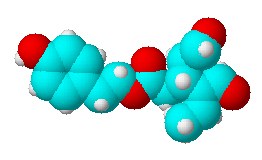It’s not something I can claim as my own really, but my name was an answer on the US TV show Final Jeopardy some time ago. Apparently, the associated question was “Who invented the computer reset ‘Control-Alt-Delete’?” Well, it wasn’t me, but it was my namesake at IBM during the early 1980s. And, where would we all be without him? Stuck in an endless blue screen of death state I reckon.
Author: David Bradley
24 Hour Science Projects
Check out 24 Hour Science Projects – it’s an online package of five complete science project guides. The projects can be completed in one day, and come with step by step instructions. Students can easily find science project success with 24 Hour Science Projects! By the way if you spelled science projects, as sience prodgects you spelled it incorrectly. It would be a good idea not to do that when you’re completing your project write-up and remember even a professional with a spellchecker can be a dangerous thing.
Comments
UPDATE: 2011-11-30 It’s the last day of Movember, and I see from our laser display board that Sciencebase has passed the 2000 blog posts mark by a long margin. Apologies if you were expecting a fanfare that never came.
UPDATE: 2011-09-04 Fast approaching 2000 posts on Sciencebase since switching to WordPress. Now locked down comments to three-day open, but you should be able to add comments to all posts via Facebook.
UPDATE: 2011-05-17 We’re still here, still blogging, about 1900 posts at the time of writing and thousands of comments. Once we switched to WordPress, which is years ago now we needed to be even more vigilant with spam comments. As of this year, comments are enabled on new posts and you can offer your thoughts for a week before the articles are essentially archived and comments disabled.
I’ve enabled comments for the SciObs Sciencebase science blog, please feel free to tell me what you think…comment spam will be ruthlessly hacked to pieces and the perpetrators hounded down and spiked.
Fluted Filter Paper

As a chemistry student, I was always taught to flute my filter papers, but a heated debate about another method of using your filter paper is raging on the Chemed-l discussion group about why others fold their paper and then tear off the corner. Hal Harris University of Missouri-St. Louis reckons the little corner tear improves the filtering process and also speeds it up significantly. So much so, he says, that “Over a lifetime in chemistry, I’m sure that this has saved me a cumulative 20 msec, at least.”
Meanwhile, here’s the standard method of fluting filter paper. The technique is used when you wish to separate a liquid and a solid, keeping the liquid and discarding the solid. The specific arrangement of folds (flutes) in the filter paper will allow the liquid to pass through it very quickly and at the same time provide a large surface area on which to collect the solid impurities.
ES&T Online News: Skeptics get a journal
Paul Thacker of the ACS wrote to tell me he has written a summary of the state of play in publishing when it comes to being skeptical about climate change science. Check out his piece on the journal “Energy & Environment”.
He suggests that climate-change skeptics rejected by mainstream peer-reviewed scientific journals can always send their studies to Energy & Environment and his premise is supported by Sonja Boehmer-Christiansen, the journal�s editor. She says that the greater the agreement between climatologists, the more suspicious she becomes of their claims that human activity is the cause of global warming.
At least one citation from this journal mentioned in an EPA report was slipped in, says Thacker, and let to the subsequent deletion of the whole section on climate change from the report. To me that seems like almost an admission that there is no consensus.
Psoriasis
Sciencebase reader “Dr Viswanath K” contacted me today with the following question: “What type of cell in the hypothalamus controls epidermopoisis/epidermokinetics?”.
There’s absolsutely no way I can claim to be an expert in this area, although I could ask an expert and provide definitions of those two terms and perhaps find a description of the types of cell involved. However, I am sure there is at least one Sciencebase reader out there who knows that answer. Feel free to leave a comment on the subject if you have any insights.
Oleocanthal Structure
A natural product from extra virgin olive oil works as a non-steroidal anti-inflammatory agent, with effects similar to ibuprofen according to researchers at the Monell Chemical Senses Center and collaborators at the University of Pennsylvania, The University of the Sciences in Philadelphia, and Firmenich, Inc. Oleocanthal structure
Oleocanthal structure
The compound “oleocanthal” inhibits the cyclooxygenase (COX) enzymes.
The finding is significant because inflammation increasingly is believed to play a key role in a variety of chronic diseases. “Some of the health�related effects of the Mediterranean diet may be due to the natural anti-COX activity of oleocanthal from premium olive oils,” observes Monell biologist Gary Beauchamp.
The findings are described in the September 1 issue of Nature.
Cancer therapy side effects
There’s an interesting tale of a novel side-effect causing problems for young cancer sufferers in the UK. Nightclub bouncers it seems have been turning away cancer patients who have been rendered hairless by their treatment on the basis that they must be “skinhead thugs”. According to the Times – http://www.timesonline.co.uk/article/0,,2-2319293.html – half the young cancer patients from Manchester’s Christie Hospital have been turned away from a pub or club door. The solution was to issue the patients with a photo identity card to stop them being turned away.
Pines Lab People
I’m not yet sure whether it’s uber-geeky or just clever-clever, but the “people” web page for the Pines Lab at Berkeley, that’s Alex Pines, in case you didn’t know, divides up past and present team members into “Current Pine Nuts”, “Old Pine Nuts”, and “All Nuts”. There are also Global Pinenuts, presumably those Pines lab members who have fallen far from the tree.
Just be thankful, Professor Dogg at MIT hasn’t had a similar idea…or worse still Hadley Cocks at Duke!
Pines lab people can be found here
Porn Star Names
TL:DR – This article from 2005 warns readers not to indulge in pornstarname memes that might expose their password secrets, such as mother’s maiden name, first pet, and other such personal information.
 Porn star names seem to be the modern trendy equivalent of star signs. People at parties ask you what your porn star name might be, and others have a useful little formula for generating them. First name comes from the name of your first pet, say. Lucky. And, the last name, your mother’s maiden name. Cocker. Hence my PSN might be Lucky Cocker. My wife’s is Goldie Black…
Porn star names seem to be the modern trendy equivalent of star signs. People at parties ask you what your porn star name might be, and others have a useful little formula for generating them. First name comes from the name of your first pet, say. Lucky. And, the last name, your mother’s maiden name. Cocker. Hence my PSN might be Lucky Cocker. My wife’s is Goldie Black…
It’s fun and seemingly harmless. But, watch out for websites that offer to generate a PSN for you…typing in your pet’s name and mother’s maiden name might seem innocuous enough, but remember that very information usually forms the basis of the security checks for your online banking too…
Incidentally, my pet wasn’t called Lucky and my mother certainly wasn’t a Cocker. I’m not that stupid, it’s Snowy and Hedgecock.
UPDATE: It turns out I needn’t have bothered coming up with a porn star name for myself, apparently there is a David Bradley porn star out there somewhere as it is. Check out this Sig Figs post for photos of several other people with the name David Bradley (but not the pr0n star, I hasten to add).
UPDATE: A self-styled Wikileaks for porn has revealed the real names of dozens of porn stars who use stage names (industry pseudonyms). The Independent reports that, “The ability of those pornographic film performers to hide their identity behind sometimes bizarre stage monikers has been shot to pieces after a website published a leaked database containing the real names, dates of birth, and official nicknames of more than 15,000 of the adult industry’s hard-working performers, past and present.”